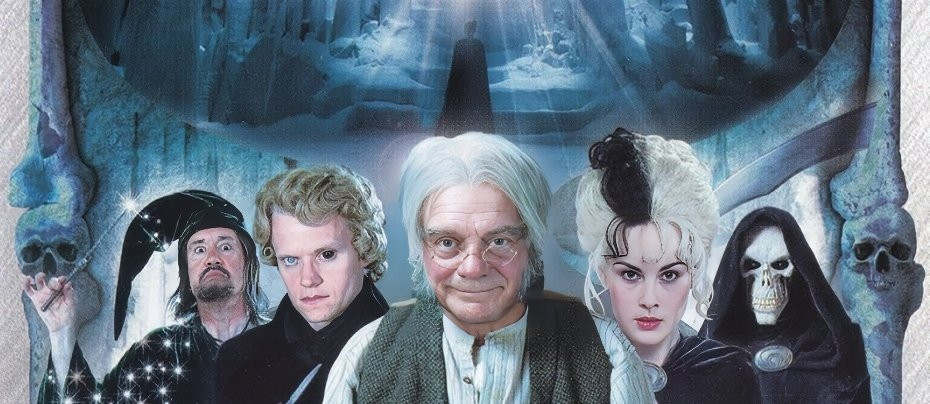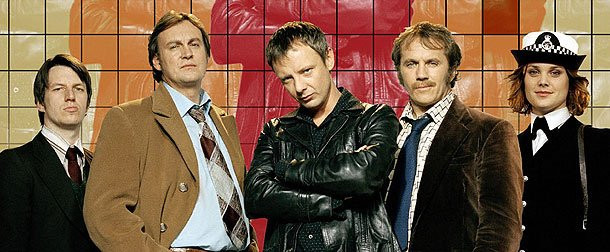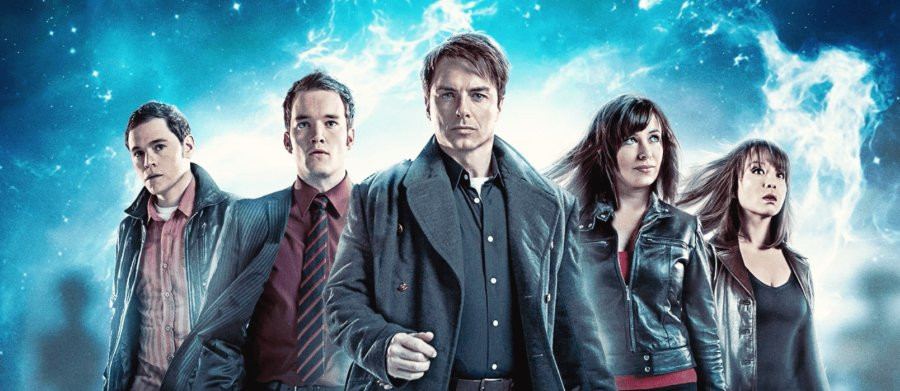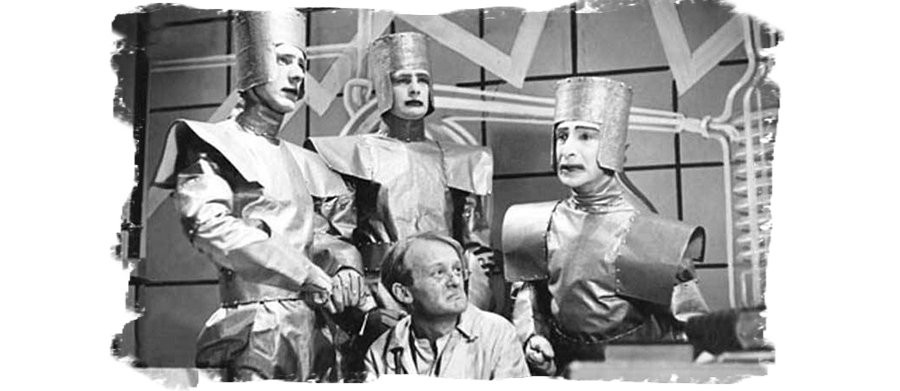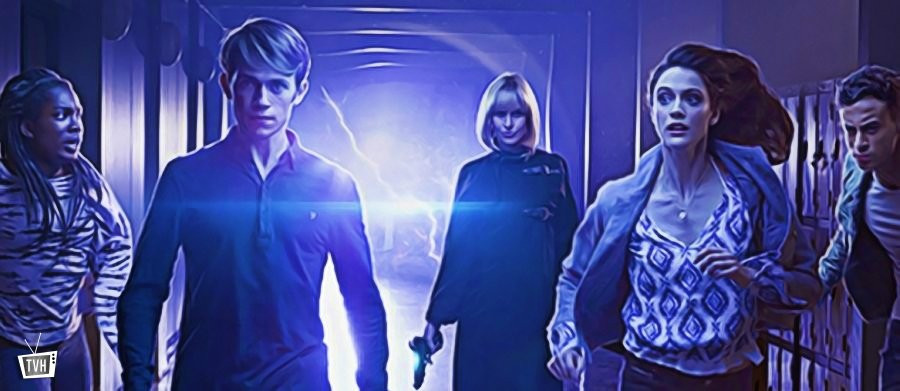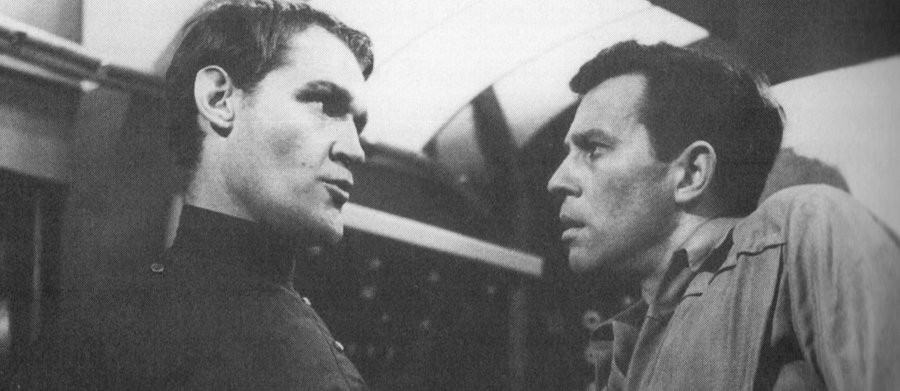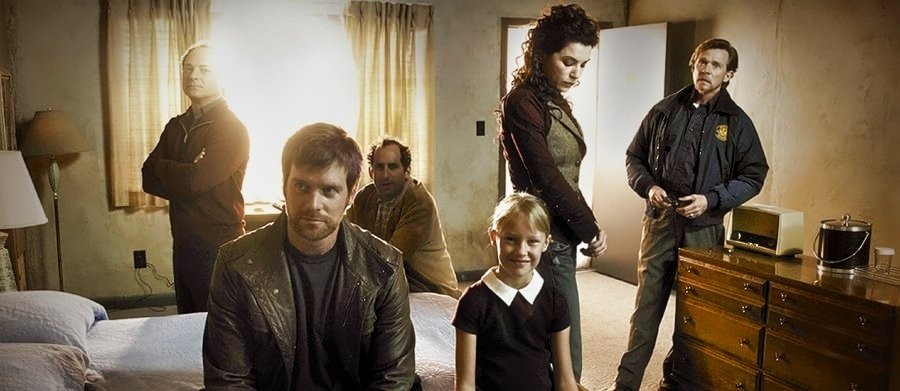
The Lost Room
2006 - United StatesThe Lost Room is an unjustly overlooked science fantasy series which combines high dramatic stakes and an ingenious central concept. Created by Christopher Leone and Laura Harkcom, the series came about from a combination of two ideas that Leone had been sitting on for years. One was a joke pitch involving weirdly specific superpowers, which he and his colleague Paul Workman had played around. The most intriguing of their spitballed superpowers was the ability to teleport in and out of a hotel room. "Paul’s idea was that if he had the power to teleport into a hotel room, that would be life-changing," said Leone in a 2016 interview. "You could live there, you could order room service, so you wouldn’t have to pay rent, buy food, etc. Basically it’s a perfect way to not need a job."
This became combined with Leone's mothballed movie pitch, about someone who gets a glass eye with magical powers, and becomes drawn into an underground war over it. He and Harkcom, while searching for a concept to spin into a series for the Sci-Fi Channel (latterly SyFy), took these ideas and mixed them together. The specific superpowers became, instead, attached to individual objects, allowing people to trade, buy or steal them, thus creating the underground war that had previously hinged on the glass eye (which, indeed, became one of the Objects in the series). The hotel room remained central to the story.

The Lost Room saw life as a six-part miniseries, although on original airing it was broadcast in three double-length episodes, more like a run of TV movies. It starred Peter Krause (Six Feet Under, Dirty Sexy Money) as Joe Miller, a Pittsburgh PD detective and single father, living with his daughter and struggling to maintain custody. His investigation into an impossible murder scene sees him come into possession of the Key, a simple motel room key that can open any door with a lock, and lead to any door on Earth, via the interstitial space of a perpetually sunlit motel room. When the murderer, a skeevy but low-level criminal known as the Weasel (Roger Bart – known for Broadway musicals The Producers and Young Frankenstein and a singer for Disney animations) comes after the key, Joe's life is destroyed. The Weasel abducts his daughter, Anna, played by eight-year-old Elle Fanning – still in the gappy-toothed stage of life but already a success with roles in Daddy Day Care and the series Babel. When Joe faces down the Weasel, Anna seeks refuge in the Room but the door is closed on her, while the Key is still outside. In turns out that the Room resets each time it is closed off, and Anna vanishes.
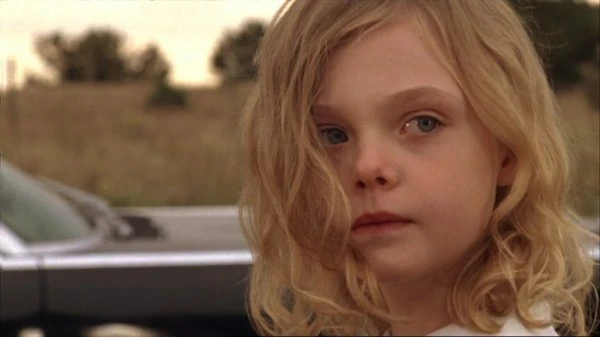
The mission to find and rescue Anna leads Joe deeper down the rabbit hole. It turns out that there are hundreds of objects, all of which were present in the Room when the Event – the details of which remain unknown – altered the nature of the room and everything in it. Since the Event happened in 1961, the Objects have fallen into the hands of various unsavoury people, who mostly fall into two camps: the Legion, who want the Objects to be destroyed (which is seemingly impossible); and the Order, who believe the Objects are pieces of God and will allow communication with him if they are reassembled. These two groups and various other opportunists have been fighting over the Objects for decades, and will stop at nothing to get their hands on them.

In a clever touch, the Objects seem to attract each other, so that not only does Joe have people on his trail, he is handily drawn to other holders of Objects. This keeps the plot moving and keeps bringing in colourful characters. Through the course of the series, Joe is forced to work with and make alliances with various people to further his pursuit of his daughter, all the while trying to keep the Key to himself long enough to get to her. He finds himself working with the Weasel for a stretch, who proves to be completely untrustworthy when he tries to attack Joe in the Room with his prized possession, the Pen – which microwaves people. Fortunately for our hero, Objects don't work in the Room.
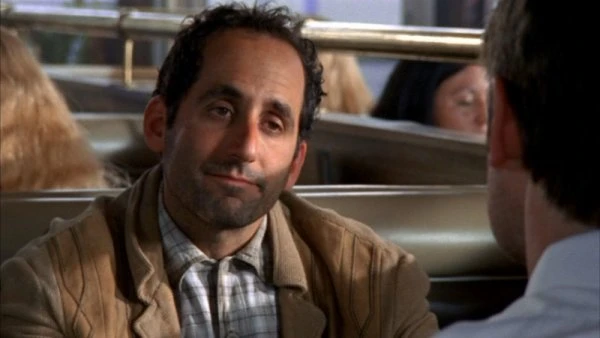
The best character is Wally (Peter Jacobson – House, Colony), an eccentric drifter who holds the Bus Ticket, which can teleport anyone to one specific location – about six feet off the ground in Galup, New Mexico. He becomes an on-off sidekick to Joe, and has extensive knowledge about the Objects, although he mostly tries to keep himself out of trouble and is happy with his Bus Ticket, thank you very much.
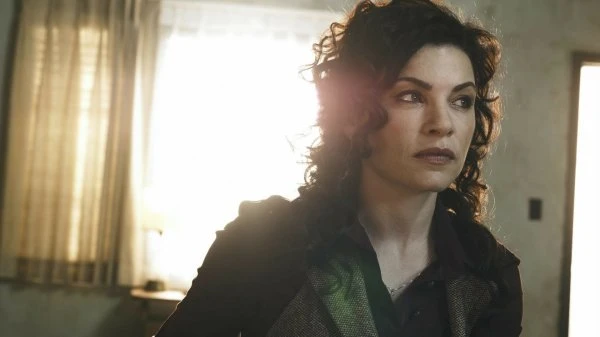
Joe becomes uneasy allies with Jennifer (Julianna Margulies – ER, The Good Wife), a member of the Legion who is determined to add the Key to their collection of Objects. Jennifer is a decent but hard-shelled operative, but in the course of the series forms a romantic relationship with Joe. To be honest, the romance feels a little rushed and tacked on – because if you have two good-looking leads they have to get together, right? Prolific actor Dennis Christopher (Django Unchained, 1990's IT) plays Dr. Martin Ruber, a forensic pathologist who works with Joe and becomes obsessed with the Objects, murdering Joe's partner in pursuit of them and implicating Joe. Ruber becomes involved with the Legion and his sanity visibly deteriorates as he becomes more involved, and while Christopher gives an excellent performance, his obsession comes out of nowhere and really needed a couple more episodes to develop realistically.
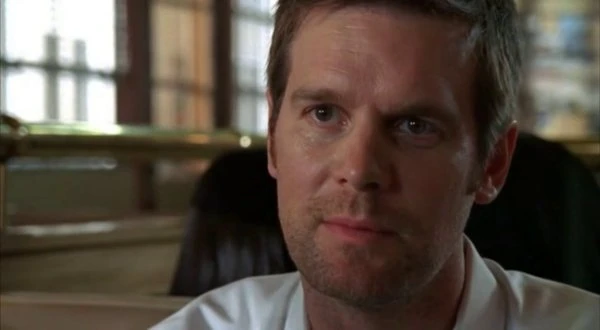
There are all sorts of nefarious types after the Objects, but if there's a main villain, it's Karl Kreutzfeld, played with understated skill by Kevin Pollak (The Marvellous Mrs. Maisel, A Few Good Men). Kreutzfeld owns a chain of pawn shops, through which he has acquired a vast collection of Objects for his own gain and a considerable personal fortune through their exploitation. While he's completely untrustworthy, he and Joe form a temporary alliance and understand each other, as both are trying to save their children – Kreutzfeld's son having been diagnosed with terminal leukaemia. His mission runs in parallel to Joe's and he will stop at nothing to achieve his goals, and while he's completely amoral it's easy to see how Joe could end up like him if his quest to find Anna continued long enough.

There are plenty of other characters who drop in and out of the story, with favourites including Ewen Bremner (Trainspotting) as paranoid, broken Stritzke, who has a Comb which can stop time, and comedian Margaret Cho as Suzie Kang, a chain-smoking facilitator who deals in information on the Objects' whereabouts. The Objects are many and various, with inventive and often hilarious properties. Although the Bus Ticket is probably the funniest, others are pretty wonderful, such as the wristwatch, which boils eggs. Objects can also be combined to create new powers – the wristwatch, when combined with the knife, grants telepathy, apparently without cooking any eggs. Other objects are devastatingly powerful, perhaps the greatest being the Eye, which can heal and destroy flesh. The Objects, when combined in enough numbers, are potentially catastrophic. Even on their own, they can be devastating for those who hold them – not only do they have to contend with various collectors trying to get their hands on them, they seem to generate a sort of bad karma, with ill fortune following the holders around. People also become utterly dependent on the powers of their Object, which is bad news when someone steals it.
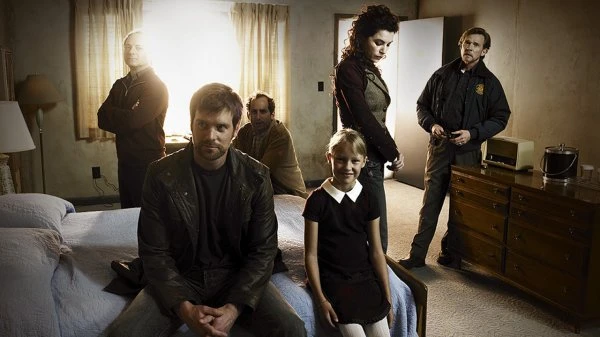
Joe's quest unfolds gradually, continually unearthing new and unexpected details. We never find out just what the Event was, or why it apparently removed a motel room from space and time and imbued its contents with incredible powers. This lack of answers might be frustrating for some, but it gives the series an unknowable air of mystery. It's tonally unusual, a mixture of grim Americana, thriller, horror and sardonic humour. The series moves to an intriguing climax, and the story is self-contained, but there's a clear opportunity for a follow-up. The plan was clearly that the series would continue, with Leone on record as saying his original intention was that each season would follow a different protagonist who would be drawn into the world of the Objects. Sadly, the series did poorly on its initial run, getting the Sci-Fi Channel's lowest ratings for a miniseries ever, which is pretty damning. Perhaps it was just a little too odd for the main audience. Perhaps the core concept was hard to grasp. Perhaps the pacing was a little slow. It's a shame, because The Lost Room is an ingenious series and a feat of incremental world building, with a charismatic central performance by Krause. It's worth seeking out (at time of writing, it's back on Amazon Prime), a quality sci-fi tale full of intrigue and esoteric adventure.
Seen this show? How do you rate it?
Seen this show? How do you rate it?
Published on February 9th, 2021. Written by Daniel Tessier for Television Heaven.



